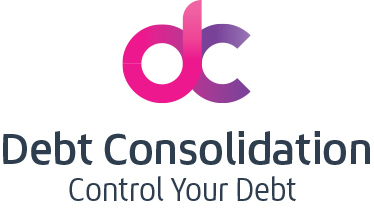When you have multiple high interest credit card debts, consolidation seems to be the best option. You can roll those debts into one, make single payments each month and save money on interests. Plus, you can also enjoy a cleaner credit file—with lesser debts to pay. But, how do you choose the best debt consolidation loan in the market?
With so many lenders offering their ‘best’ consolidation options, you might find yourself in a dilemma as to which one you should pick. So, here’s a simple guide in finding the best loan option that would not only help you pay your credit card debts, but help you start all over again on your journey to a more stable financial future.
-
Search for specialised lenders that would allow you to borrow up to the amount you need to settle your financial obligations with multiple credit card companies
Credit card debts are hard to pay- especially when you’ve got multiple. This is one of the major reasons debt consolidation is commonly used to repay these kinds of debts. Look for specialized lenders that are willing to let you borrow up to the amount that you need to consolidate your debts – like Australian Lending Centre. These kinds of lenders will be more than willing to help you out of whatever sticky situation you’ve got yourself stuck in. Most people, however, consolidate their debts to improve their credit score. When you consolidate your debts, this will leave a good mark on your credit score, since your debt has been paid in record time- and we all know the importance of the credit score is in the world of Lending.
-
Understand that while consolidation is a one-time cash infusion that would pay off all your debts, it is still a loan. So, use your funds wisely
Debt consolidation- as we all know- is compiling every debt you have into one, so it wouldn’t be hard for you to repay it. Multiple debts are hard to pay, which is why people commonly just take out a debt consolidation loan. Even though it already pays for every debt you have, you still have to pay it back, since it’s still a loan. You need to spend the money you get wisely, otherwise, what’s the point of even taking out a loan if you don’t meet its major purpose?
Start by paying everything that you need to pay, and if there are any excess, use it properly. Build a business if you need to. When you build a business though, make sure that its income will be enough to help you repay the loan you took out.
-
Watch out for hidden charges and escalating interest rates
It is better to look for a consolidation loan with a fixed interest rate, so you don’t have to worry about fluctuations. But, you can also choose variable interests as long as the terms of the contract are clear and specified from the very start. Make sure there isn’t any hidden charges so you wouldn’t have any difficulties in repaying the loan you took. Most people often have difficulties in repaying because they didn’t discuss it with their lender. So, to avoid any misconceptions, its best if you talk it out with your lender, just to be clear.
-
Know the real deal about the monthly payments
First and foremost, it must be within your budget. If you cannot afford the payment each month, it is better to talk it over with your lender before you borrow money. They can adjust it so it would fit your budget and give some allowance for emergency expenses. The reason you’ve taken a debt consolidation loan is because you might be financially unable to pay back every single one of those debts, therefore just compiling them into one. Sure, it’s easier to pay for one, but it can also get expensive. So, make sure that it’s clear between you and your lender that there’s a fixed price you need to pay monthly, so that it’d be easier for you.
-
Start with a practical budget.
If you want to get rid of your credit card debts, make a budget so you won’t spend, more than what you have, in cash. You need to make a budget- or in other words, a financial plan. You need to make sure than not a single penny is wasted over something that isn’t important. You can start by creating a spreadsheet of the regular bills each month; like your debt consolidation payment, credit cards (it is advisable to cut them out until you have fully paid off your consolidation loan) and utilities. Next, write down the basic necessities each month, such as grocery, transportation, and so forth. Then, you can write down other items that you think you can’t go without (minus luxuries that you may not be able to afford for the time being).

